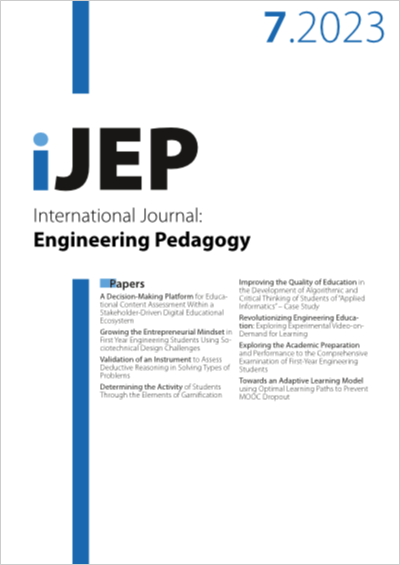Towards an Adaptive Learning Model using Optimal Learning Paths to Prevent MOOC Dropout
DOI:
https://doi.org/10.3991/ijep.v13i7.40075Keywords:
Adaptive Learning, MOOC, ACO, PCA, Drop outAbstract
Currently, massive open online courses (MOOCs) are experiencing major developments and are becoming increasingly popular in distance learning programs. The goal is to break down inequalities and disseminate knowledge to everyone by creating a space for exchange and interaction. Despite the improvements to this educational model, MOOCs still have low retention rates, which can be attributed to a variety of factors, including learners’ heterogeneity. The paper aims to address the issue of low retention rates in MOOCs by introducing an innovative prediction model that provides the best (optimal) learning path for at-risk learners. For this purpose, learners at risk of dropping out are identified, and their courses are adapted to meet their needs and skills. A case study is presented to validate the effectiveness of our approach using classification algorithms for prediction and the ant colony optimization (ACO) algorithm to optimize learners’ paths.
Downloads
Published
How to Cite
Issue
Section
License
Copyright (c) 2023 El Miloud Smaili, Mohamed Daoudi, Ilham Oumaira, Salma Azzouzi, My El Hassan CHARAF

This work is licensed under a Creative Commons Attribution 4.0 International License.


